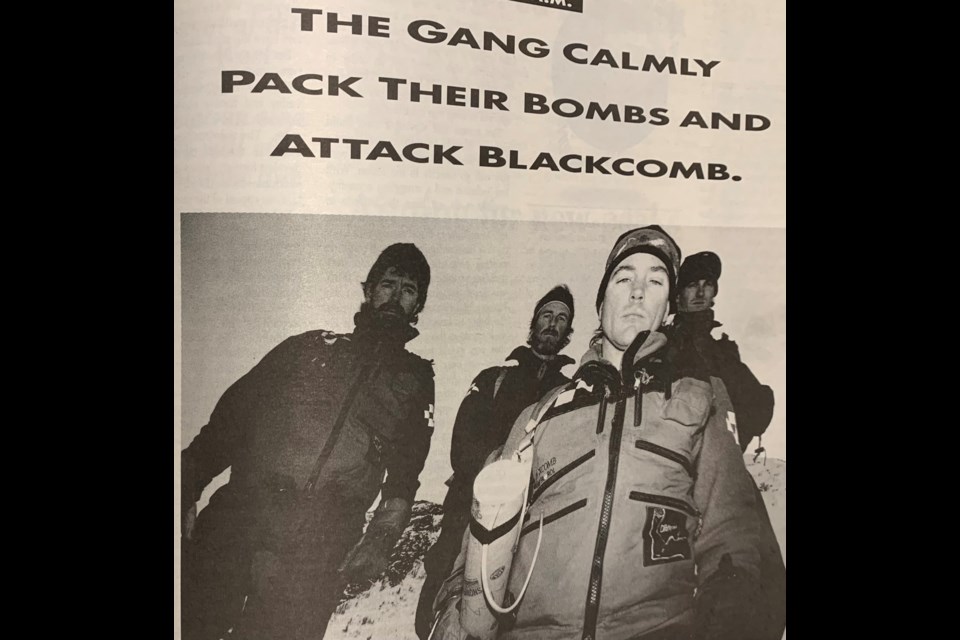Twenty-eight years ago, Whistler was a different kind of place, but the challenges faced by the community sound similar to what we are still dealing with today.
Looking back at the archives from the Feb.10, 1995 issue of Pique, these were some of the stories making the headlines.
Letters: AWARE raises concern about Green Lake Golf Course development
In a letter to Pique, future Whistler Mayor Ken Melamed raised concern about the proposed Green Lake Golf Course development on behalf of the Association of Whistler Area Residents for the Environment (AWARE).
The development, now known as the Nicklaus North Golf Course, caused a significant amount of controversy back in the day due to being developed on one of the few remaining pieces of wetland habitat left in the valley.
It's construction was one of the most significant controversies in the community at the time, leading to several marathon debates at Whistler council—and AWARE's first opposition campaign.
Whistler and Blackcomb resort workers debate unionizing
The lead news story that week highlighted the debate on the unionization of Whistler and Blackcomb workers, as the United Steelworkers of America began its own push to unionize. Canada West Ski Areas Association president Jimmy Spencer wasn’t too happy about this, raising concern that it would eat into the bottom line of ski hills.
In the end, the two mountain operations never unionized, despite the organizers' best efforts. Twenty-five years later, the mountain's snowmakers would also attempt to unionize, but the Labour Relations Board rejected the efforts in 2021.
Whistlerite aims to climb Mount Everest without oxygen for AIDS fundraiser.
Mike Dobbin and his climbing partner Nick Cienski were about to embark on a monumental challenge, to summit Mount Everest without oxygen or a support team to raise money for AIDS research.
The two adventurers aimed to raise $200,000 for the Saint Paul’s Foundation. The primary push for Dobbin to attempt this incredible feat was a close friend from his hometown contracting and slowly dying of the disease.
“This is no longer a disease of gays and IV users. The number of heterosexuals acquiring AIDS is on the increase,” Dobbin said. “Now, you might not know anyone with AIDS. In 10 years, you will. The greater funds spent on research and education, the less people will catch the disease, the less people will die.”
Feature: Where do we go from here?
The week's feature piece focused on how Whistler changed from its early days as a small, one-mountain resort in the 1970s to the town it had become in the 1990s, with a look towards the community's future.
A focal point of the story was what happened to the half a dozen people that used to live in squatter shacks along Fitzsimmons Creek, between what is now Whistler Village and the White Gold neighbourhood. In 1978, local hippie inhabitants were evicted, and their huts torched to the ground to make way for the Village Centre's expansion.
Chevron proposed on Nancy Green Drive
A proposal came before Whistler's mayor and council to build a Chevron gas station on the corner of Highway 99 and Nancy Greene Drive, near where the proposed White Gold affordable housing project is today.
The gas station never got built in this location, but the idea of creating a Chevron station continued for another 20 years. Eventually, a Chevron was constructed in Rainbow in 2015, finally giving Whistler a much-needed second gas station.
The Great Escape: Ex-Whistler residents seek refuge and cheaper real estate in the Kootenays
Spurred by rising real estate prices and the resort growing at an incredibly rapid pace, a few long-term Whistlerites from the 1970s decided to throw in the towel on the resort and head for the rural ski hills in the Kootenays.
“If you’ve spent any length of time in Whistler and had a chance to look at real estate prices, it’s very unaffordable,” Dean Moffott said.
The more things change...




